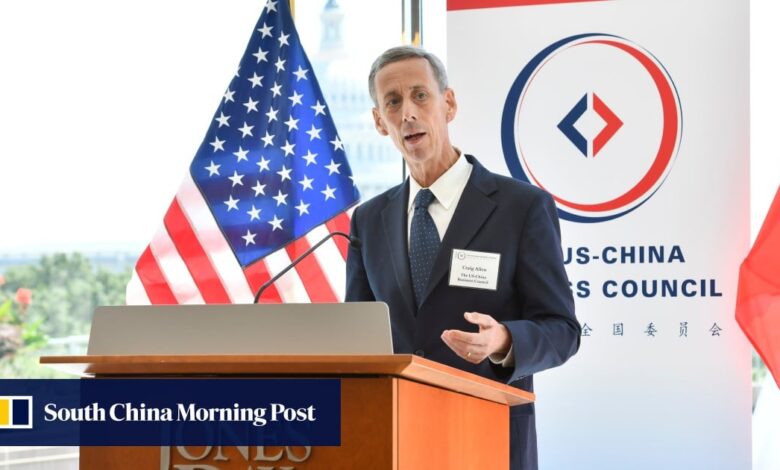Exclusive | China’s third plenum: US executives eye first-hand insights from economy-centric conclave

A group of heavyweight US executives will head to Beijing next week, hoping to meet with Chinese officials to obtain first-hand insight following the conclusion of China’s widely-watched third plenum, according to people with knowledge of the matter.
The visit will be arranged by the US-China Business Council (USCBC), a Washington-based advocacy group.
It will be led by council president Craig Allen and board chair Raj Subramaniam, CEO of FedEx Corporation.
Companies included on the list for the visit are Goldman Sachs, Starbucks, Honeywell, UnitedHealth, Nike and Qualcomm, all of which have a huge business presence in China.
“The group is hoping to meet with top Chinese leaders, such as foreign minister Wang Yi and the minister of commerce, Wang Wentao,” said one source.
The USCBC did not reply to an emailed request for comment.
The USCBC represents more than 270 American companies that conduct business in China.
For my business, we still rely heavily on products that are made in China
The council will hold its closed-door annual flagship event, the China Operations Conference, in Beijing on July 26, which is mainly set for discussions related to China’s macroeconomic and business environment, according to information disclosed on its official website.
Chinese authorities have rolled out the red carpet for foreign investors, promising to widen market access and provide equal treatment, but such promises are often met with suspicions.
Foreign direct investment dropped by 28.2 per cent year on year in yuan terms in the first five months of this year, according to China’s Ministry of Commerce.
“From an economic standpoint, it’s very important for the US and China to maintain a good relationship,” said Dan Digre, president of Misco, an American designer and manufacturer of audio speakers in Minnesota.
“For my business, we still rely heavily on products that are made in China.”
Digre added that the problem of the US’ relationship with China is “driven by politics”.
“Reaching out to the Chinese might make the current administration look like they’re trying to make a deal”, at a time no US presidential candidate would want to look “weak”, he added.
Source link




